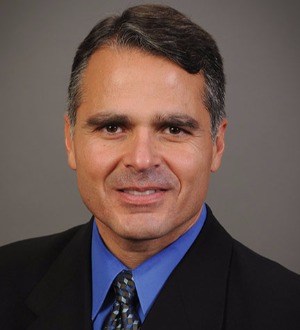Find Lawyers in America for Medical Malpractice Law - Defendants
Practice Area Overview
In simple terms, the standard of care is the legal duty that a health care provider (physician, nurse, medical technician, hospital, clinic, etc.) owes to the patient. That duty or obligation arises from the professional relationship established with the patient. It is axiomatic that without such a relationship the obligation to treat or provide care could not exist. The professional relationship, however, does not always require direct communication between the health care provider and patient may be established indirectly. For example, in addition to a physician who accepts a patient directly, lab technicians, pathologists, and radiologists may not encounter a patient personally but have the legal duty to comply with applicable standards of care.
Most states have enacted legislation which controls this area of specialized litigation and the legal duty of health care providers is largely defined by statute. It is now universally accepted that the duty and, thus, the standard of care, requires a health care provider to exercise the degree of reasonable care, skill, and diligence as would ordinarily be exercised by a similarly situated health care provider for a similar patient under the same or similar circumstances. The primary emphasis in this definition is necessarily placed on the requirement of "reasonable" care.
Frequently the defense of these cases will focus on the fact that the law does not require a physician or health care provider to be infallible in the exercise of his/her clinical judgments for a patient. Indeed, the law does not require perfection on the part of anyone. Important emphasis is also given to the recognition by medical science that there are often unexpected, unfortunate, and even tragic outcomes that will occur, despite reasonable care. So long as the care is found to be reasonable, there is no malpractice.
In a medical malpractice case, the burden is on the plaintiff to prove the following elements in order to be entitled to a verdict:
- A duty owed by the health care provider.
- A breach of that duty, i.e., a failure by the health care provider to meet the standard of care.
- Injury or death caused by the breach of duty by the health care provider.
While the law generally imposes no burden of proof on the defendant, the defense, where appropriate, will seek to discredit the plaintiff's theory of liability by a showing of the reasonableness of the care provided & contradictions to evidence offered by the plaintiff. This is done through testimony from the defendant with emphasis on her/his training, education and experience and the basis for the clinical judgment at issue. Additionally, pertinent medical literature may be presented along with qualified expert testimony to further demonstrate the appropriateness of the care provided and, in many cases, to show that the outcome was not produced by negligence, but may be the result of an inherent risk associated with the condition of the patient or the treatment, despite good and proper care.
The law also recognizes that, within the standard of care, there are often alternative methods of treatment which may be employed for a given medical condition and that a physician, for example, must be free to choose and follow the method he deems best for his patient, even though some other physician may later argue in favor of another method. As long as the method selected to diagnose or treat was reasonable within the standard of care and implemented with due care, there would be no liability (even if the diagnosis is later shown to be incorrect or the treatment resulted in an injurious complication).
In selecting counsel for the defense of medical malpractice claims, the health care provider and his/her representative will want to ask a number of important questions such as:
- What is the experience of the attorney/law firm in defending these highly specialized cases?
- What is the rate of successful defense for the attorney/law firm?
- What resources does the firm possess for investigation, medical/legal research, qualified support staff, development of demonstrative evidence, etc.?
- What is the expected time frame to conclusion of the litigation in the jurisdiction/venue?
- What involvement will the defendant have in assistance and preparation of her/his defense?

Select a location from the list below to find the best legal talent for your needs.
State


Our Methodology
Recognition by Best Lawyers is based entirely on peer review. Our methodology is designed to capture, as accurately as possible, the consensus opinion of leading lawyers about the professional abilities of their colleagues within the same geographical area and legal practice area.
The Process
Best Lawyers employs a sophisticated, conscientious, rational, and transparent survey process designed to elicit meaningful and substantive evaluations of the quality of legal services. Our belief has always been that the quality of a peer review survey is directly related to the quality of the voters.










































